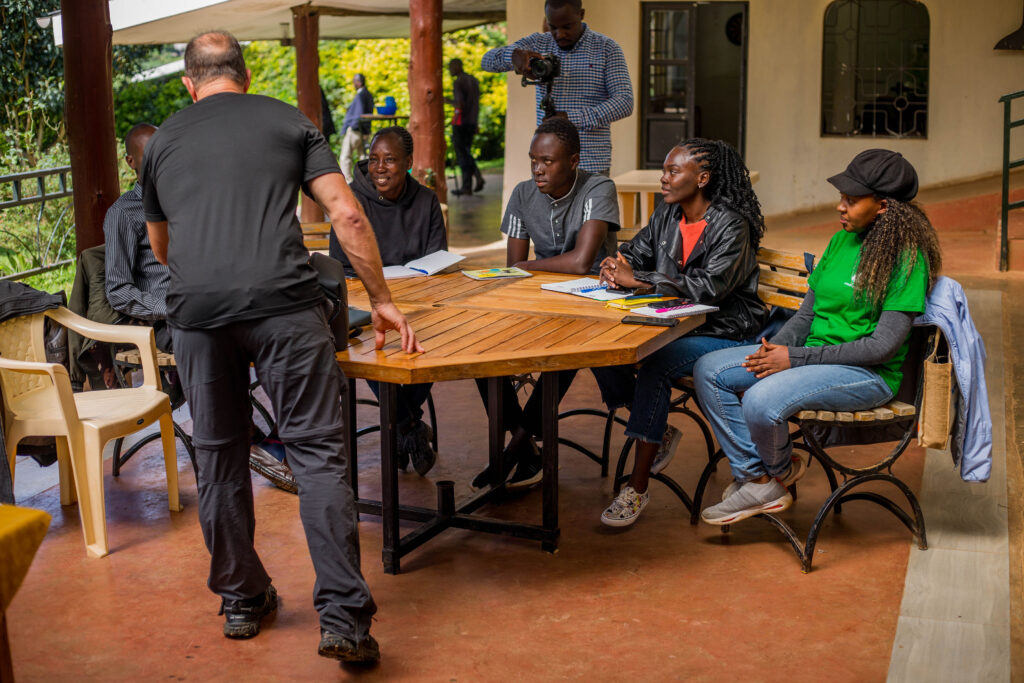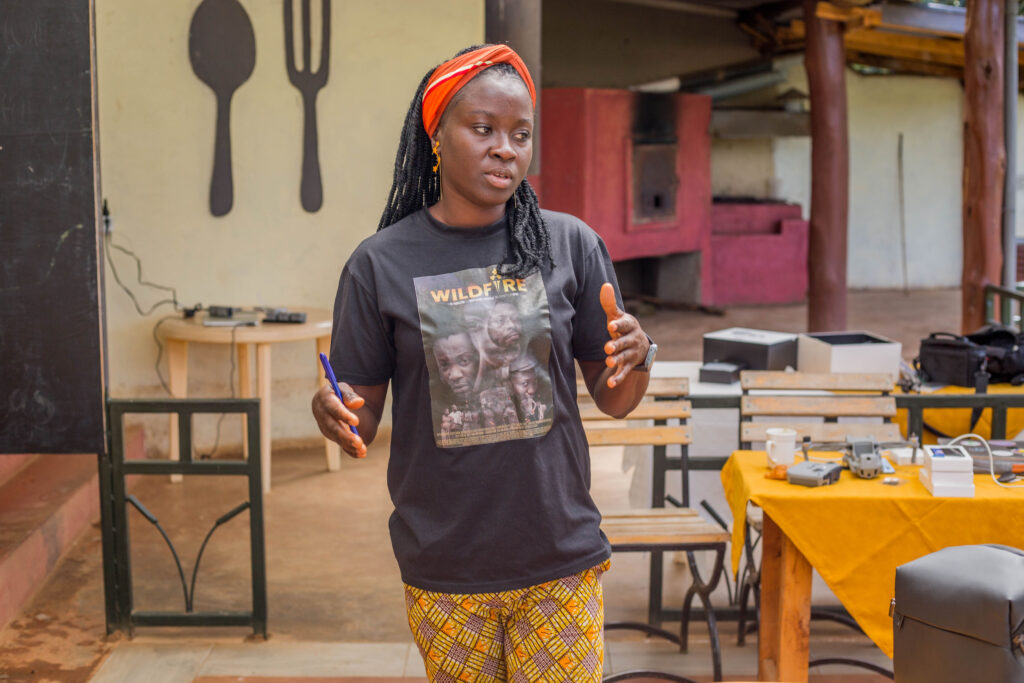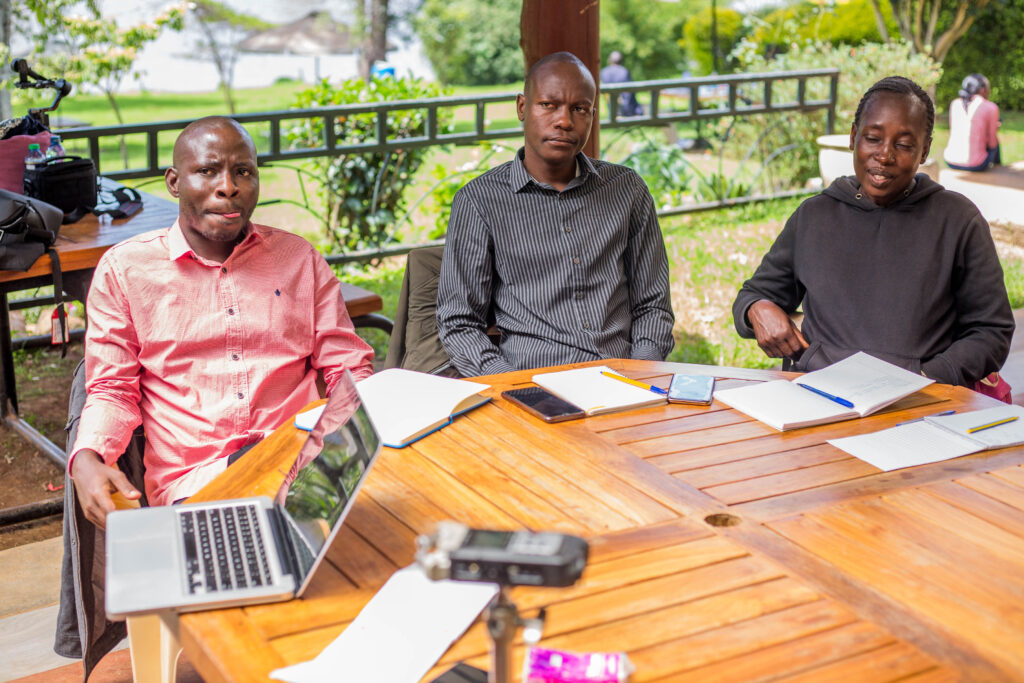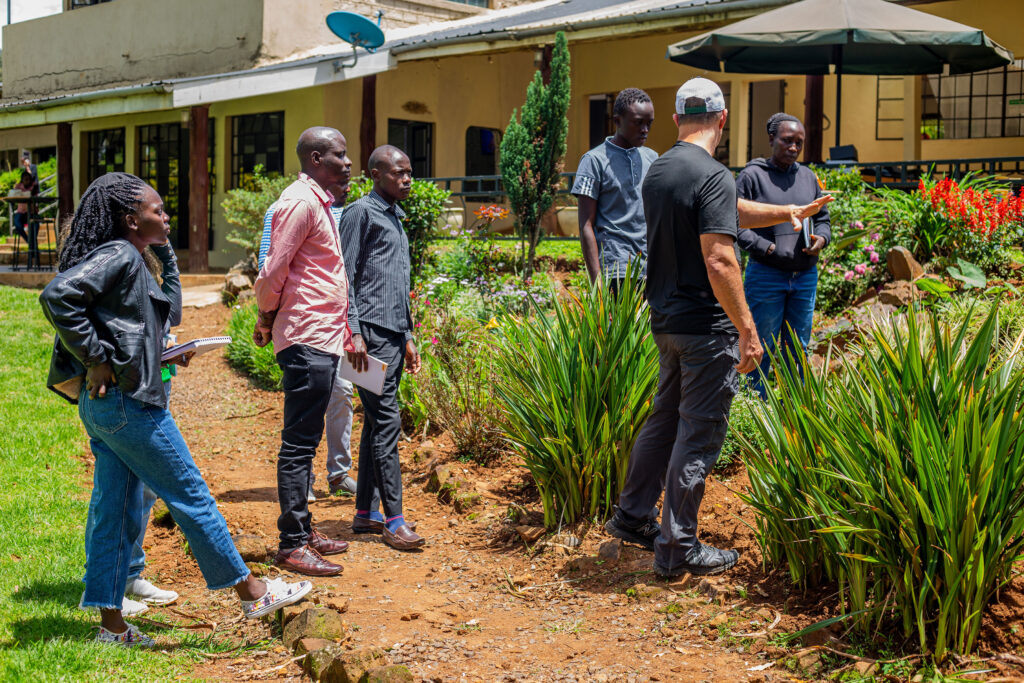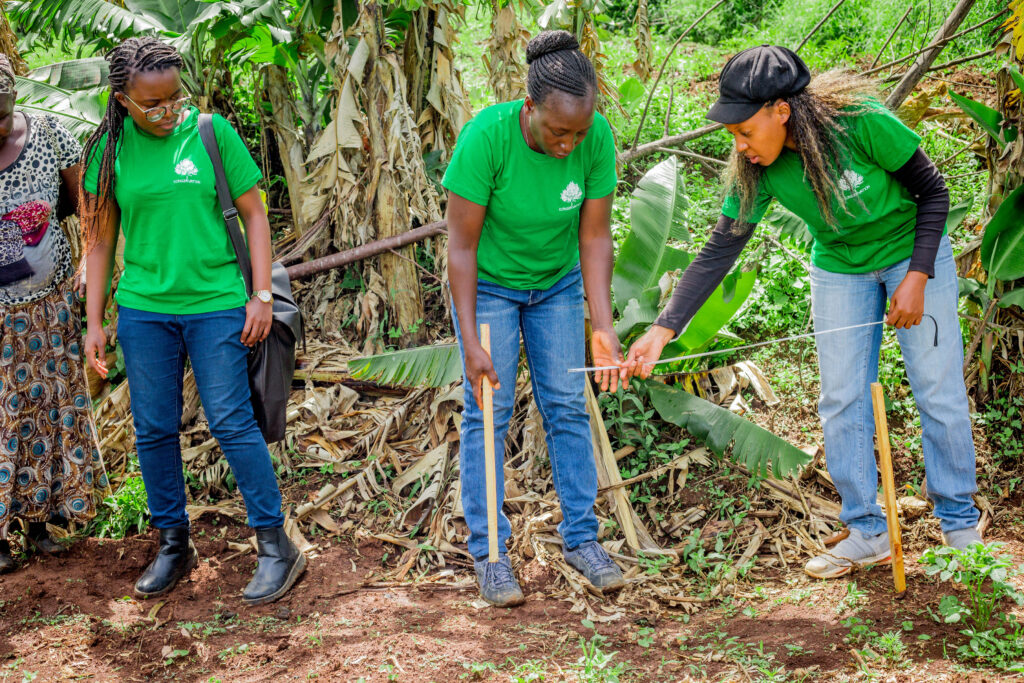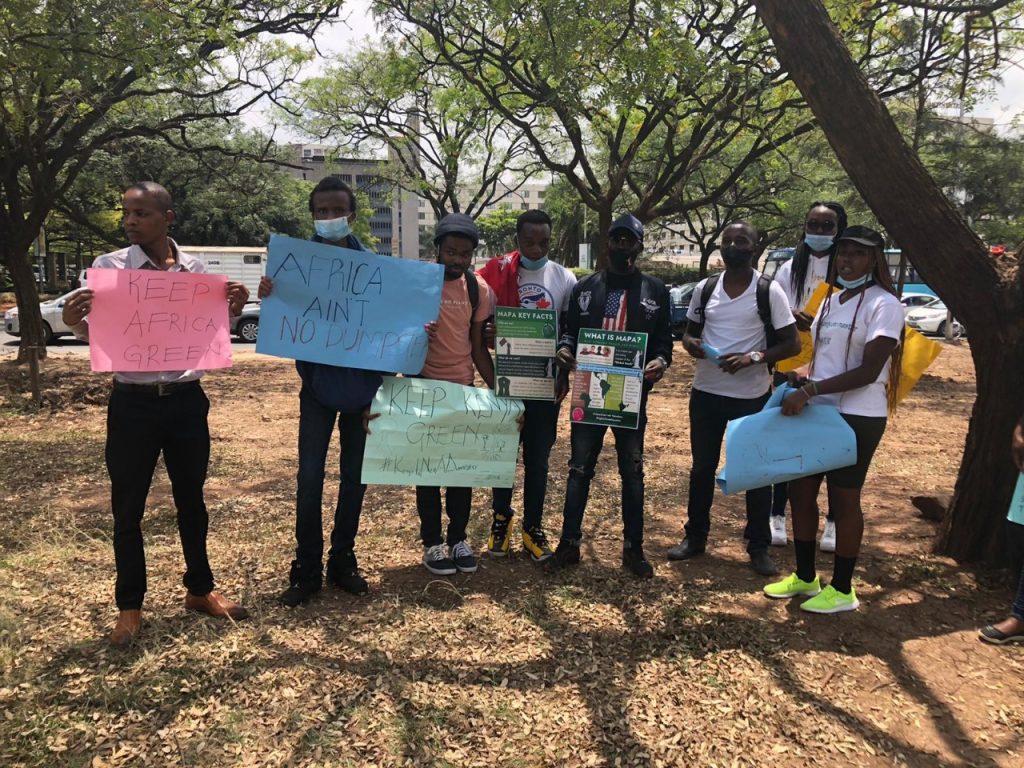Nature4Climate (N4C) collaborated with Youth Bridge Foundation (YBF) and hosted by Kenya Environmental Network (KEAN) to provide capacity-building sessions on the use of technology in mapping and monitoring. The training sessions took place between 11th April to 14th April 2023 in Nyamira County, Kenya. The training focused on the role of technology in the restoration, conservation and management of tropical ecosystems, emphasising the use of drones to capture, monitor and track the progress of plant growth in farms. Using the Locus application, participants learned to capture GPS points and input field data, transfer raw data from smartphone to PC, and synthesise and analyse the data using ArcGIS mapping software. The participants also learned about the operationalisation of a drone, including its parts and how to assemble and launch. Through KEAN’s enhanced skills and capacity, this knowledge & experience will be shared with other youth through the organisation’s pillar of knowledge-sharing.
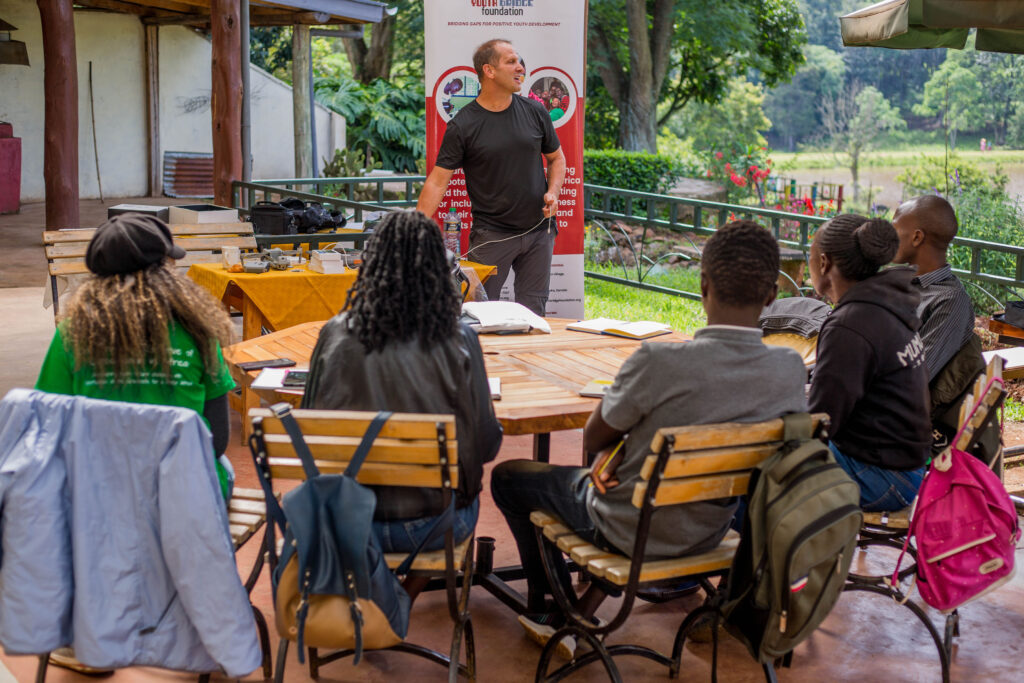
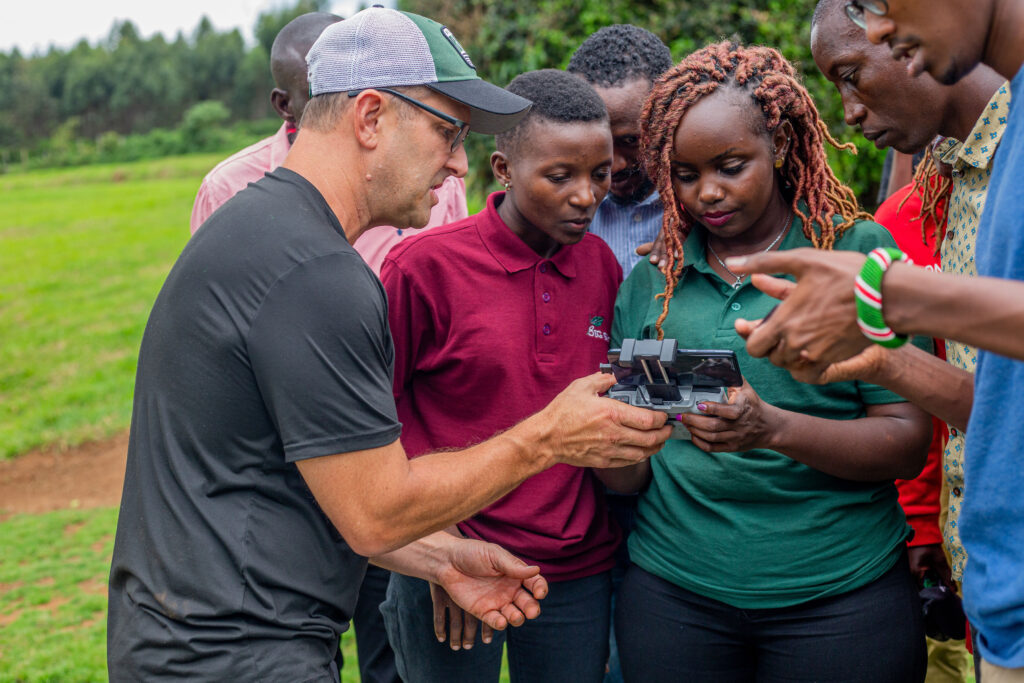
Use of Drone Technology in Mapping, Restoring, Conserving and Management of Degraded Ecosystems
Using drone technology in mapping, restoring and conserving degraded ecosystems is a way to effectively collect, document, and monitor data for numerous ecosystems. KEAN Bustani Gardens Project focuses on experiential learning through Nature-based Solutions (NbS)-inspired restoration approaches such as agroforestry in six schools across six counties in Kenya. Using drone tech, KEAN will be able to capture and track the types of indigenous tree species, fruit trees, and vegetables planted in the school kitchen gardens under the Bustani Gardens program. In doing so, the network will be able to collect and accurately document the data to monitor the health and productivity of the vegetables and the growth and survival rates of the indigenous trees.
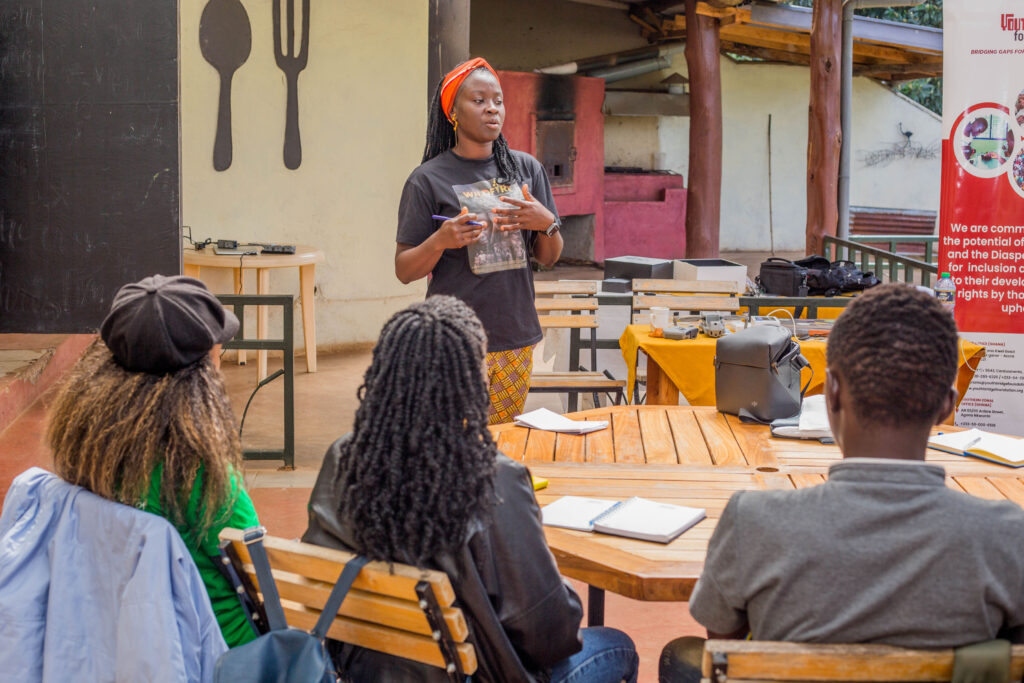
KEAN will disseminate the collected and documented data from the drone with policymakers to help identify gaps and strengthen restoration and conservation efforts in different parts of the country.
Using drone technology and mapping software, KEAN will infuse scientific and indigenous knowledge in conservation and restoration as it majorly works with local groups to contribute to a healthy environment and the well-being of grassroots communities. For instance, KEAN has partnered with Big Ship CBO to monitor mangrove restoration in Kenya’s coastal region. The drone technology will help track the restored ecosystem and monitor the progress of the mangrove trees.
Sustainable Agricultural Practices and Community Livelihoods
Use of Biopesticide
KEAN members had the opportunity to learn about biopesticide production, i.e., ingredients and the procedure(s), from a smallholder farmers’ women’s group called Riamakogoti. The women transitioned from chemical pesticides to making their organic pesticides in the year 2020 using indigenous knowledge. Since then, they have recorded numerous benefits from this biopesticide, including high yields, soil regeneration, reduced chronic diseases such as ulcers, and improved environmental and individual well-being.
Organic compost manure
The Makutano women’s group took participants through preparing organic manure as an alternative to chemical fertilisers. While it seemed tedious and time-consuming, group members stated that this organic manure’s benefits, such as increased yields, helping the soil to hold water, and retaining soil fertility, far outweigh the challenges. Smallholder farmers are also involved in ecopreneurship, selling organic manure to interested buyers.
Indigenous seed bank
The Konservation team also gave a tour of their seed bank. Currently, the seed bank has 45 kgs of seeds of numerous African Indigenous vegetables that include the Nightshade (managu), amaranthus (mchicha), and the spider plant (sageti). The primary purpose of the seed bank is to promote food security and food sovereignty among the smallholder farmers in Nyamira County. The other purpose of the seed bank is to shift the farmers from the narrative that they can only grow maize and tea. The seed banks, therefore, promote the diversification of crops and provide a means to store the seeds for the farmers.
Conclusion
Technological capacity is critical towards driving the conservation and sustainability agenda forward. The KEAN team is better positioned to upscale the use of technology to capture and monitor restoration and conservation activities due to the diverse members of networks in terms of organisational partners and individuals. KEAN will also use drone technology to make the NbS concept palatable and fun by generating maps!

